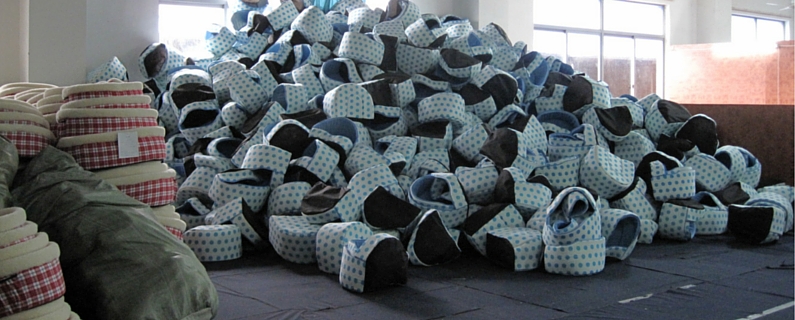These tough economic times make it difficult for international manufacturers to stay abreast of industry developments. Often, upper management focuses its attention on a limited number of company sectors. Oversight of other corporate concerns is delegated to lower-level administrators. Unfortunately, this split management style leaves many businesses unprotected from the criminal activities of nefarious actors who work within their enterprise or do business with it as vendors or contractors. The problem is magnified when corporate assets are spread across countries and fed by myriads of supply chains and logistics services. Unless the business engages on-site risk management agents throughout its enterprise footprint, including throughout its supply chains, criminal activity within its corporate sphere can wreak havoc on both its revenues and its reputation.
Counterfeit Materials Corrupt Quality Goods
According to research released by the United Nation’s Office on Drugs and Crime (“UNODC”), the global value of counterfeited goods equals approximately US$ 250 billion, not including the value of illicitly gained digital products and domestic counterfeit sales. Those numbers would raise the annual value of the counterfeit goods industry by several hundreds of billions of dollars. The value of the industry confirms that millions of fake materials and commodities are processed through legitimate supply chains and manufactured into otherwise credible products every year. When the counterfeit elements are discovered, or the now-defective products are revealed to contain the fake parts, the long-term effect on the manufacturing company can be devastating.
Supply Chain Disruptions of Any Kind Cause Long-term Losses
A 2005 study published by the Production and Operations Management Society discussed the impact of more than 800 supply chain disruptions that occurred over an eleven year period. Companies that experienced these disruptions suffered significant financial losses as a result:
- In the three years after the event, companies experienced an average of a 93 percent decline in sales, and shareholder returns were down between 33 and 40 percent;
- Operating incomes declined by an average of 107 percent, and
- Overall return on assets fell by an average of 114 percent.
As well, confiscation by law enforcement of entire shipments of cargo is a common consequence when those false elements are discovered, costing the off-shore manufacturers millions of dollars of product losses.
Supply Chain Risks Largely Ignored
Despite these very real threats to corporate wellbeing, many off-shore producers fail to adopt and implement measures to identify and eliminate supply chain risk factors regarding fake materials and product elements, even though they are aware of both the risks and the possibly devastating impact on their companies if counterfeit parts are found within their enterprise.
In 2014, researchers at the Global Supply Chain Institute conducted a surveyof a broad scope of international manufacturing executives to determine their comprehension of the criminal threat to their businesses. Of the more than 150 responses received, 66 percent reported that, while their company did have risk managers in either their legal or compliance departments, almost none had engaged the same scrutiny for their supply chains.
Perhaps more alarming, 90 percent had no process in place to quantify or assess counterfeit risks when outsourcing their production or materials sources, and, of those companies that did do some level of risk assessment, not one used outside resources to comprehensively conduct the review. Several of the respondents commented that their supervisors or upper-level management were not supportive of efforts to investigate supply chain risks of any kind and that they were compelled to scramble to repair and mitigate the situation when violations were discovered.
Costs to Society Are Large, Too
The UNODC study also details how the global counterfeit industries affect society in general, beyond its impacts on corporate health. From an environmental perspective, disposing of counterfeit materials can cause significant damage when their chemical makeup is unknown. From a human standpoint, Europol reports that a significant percentage of false products are sold by human trafficking victims who are “working” to buy their freedom from their “employer/captor.” From a health and safety viewpoint, counterfeit products do not comply with standards and pose health and safety risks to the consumers who buy them.
Do you know what your risk profile look like?
No company can afford to risk its livelihood or its reputation in today’s intense global market.
If you want to know how you rank for managing counterfeit products, take our free preparedness quiz here, to receive your score.
You can also download a Quick Guide on what you can do to avoid counterfeits here.
We also run regular webinars on topic related to risk management in the supply chain. Send us an email to be notified when our next webinar on Counterfeiting is scheduled. You can send it to: webinars@vantagecompliance.com
Lastly, you are always welcome to contact me at (+61) 413 089 020 or via email: carsten@vantagecompliance.com



